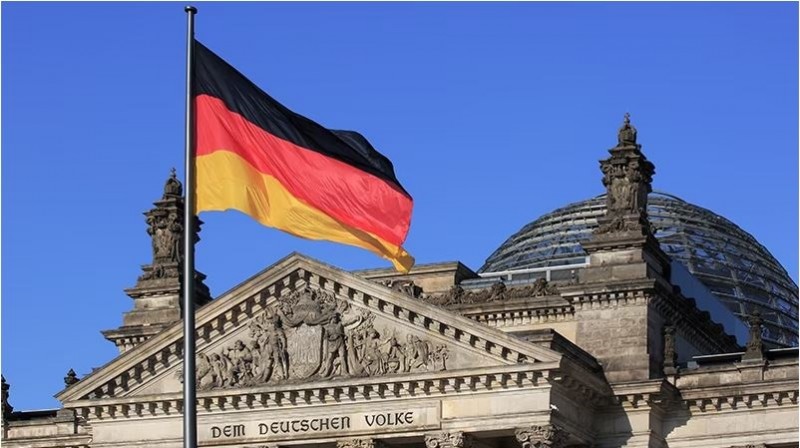
The German economy is facing significant challenges as exports weaken, energy prices rise, and the transition to green energy falters. Chancellor Olaf Scholz's coalition government is grappling with how to address these issues, with disagreements among its members.
New economic forecasts for 2024, to be revealed on Wednesday, are expected to show a sharp downgrade in growth to just 0.2 percent, a significant drop from the previous projection of 1.3 percent. Germany slipped into recession at the end of 2023, with a 0.3 percent contraction, and the outlook for the first quarter of 2024 appears bleak.
The country's industrial sector, once a powerhouse, is facing challenges from multiple fronts. Dependence on cheap Russian gas has left it vulnerable to energy price spikes following Russia's invasion of Ukraine. Additionally, interest rate hikes by the European Central Bank to combat inflation have dampened demand and investments. Export volumes have also suffered, particularly with key markets like China, which are producing more of their own goods. Geopolitical tensions and shipping disruptions further exacerbate the situation.
Efforts to transition to a greener economy have hit obstacles, with a recent legal ruling forcing the government to reconsider climate spending plans. Some German firms have been enticed by attractive green subsidies in the United States, raising concerns about competitiveness.
Major companies, including BASF and Bayer, are calling for an "European industrial deal" to revitalize the sector. Small- and medium-sized companies, known as the Mittelstand, are also urging action from politicians to prevent further economic decline.
However, the coalition government is divided on how to respond. Finance Minister Christian Lindner of the FDP advocates for tax cuts and reduced bureaucracy to stimulate growth, while Economy Minister Robert Habeck of the Greens pushes for relaxation of borrowing limits to fund infrastructure and green projects.
The government's popularity has plummeted amid protests over agricultural policies, with farmers expressing discontent with Scholz and his coalition partners. The future of the coalition hangs in the balance, with the ability to implement necessary economic reforms being a crucial factor in the coming months.
German Man Sets Guinness World Record for Fastest Ride-On Toy Car
German Frigate Joins EU Red Sea Mission to Safeguard Trade Routes